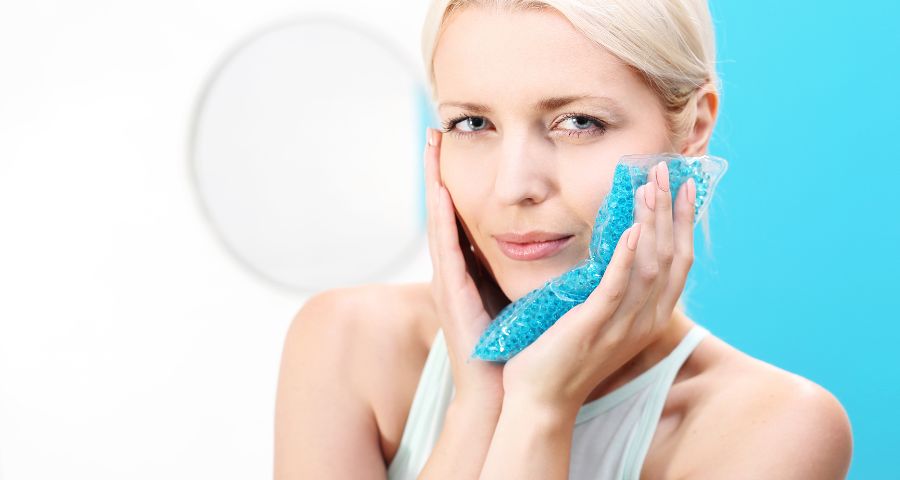Cold sores are a common skin condition that affects many people. They generally appear as small blisters or sores on the lips, nose, or around the mouth and can be very painful.
While there is no cure for cold sores, there are a number of treatments available to help reduce the severity of symptoms. Benadryl is an over-the-counter medication commonly used to treat allergies and colds, but does Benadryl help cold sores? Let’s find out.
What is Benadryl?
Benadryl is an antihistamine medication that is used to treat a variety of allergies, including hay fever, hives, and other skin allergies. It can also be used as a sleep aid. The active ingredient in Benadryl is diphenhydramine hydrochloride, which is an antihistamine that works by blocking histamines from binding to receptors in the body.
Histamines are chemicals released by your immune system during allergic reactions and can cause itching, sneezing, congestion, and other symptoms associated with allergies.
You can also check our article on Are You Married to Someone with Cold Sores?
Benefits of Taking Benadryl for Cold Sores
Benadryl is not specifically designed to treat cold sores, however, taking Benadryl may be beneficial in some cases to help relieve the discomfort associated with cold sores.
Applying a topical form of Benadryl can help reduce the swelling and redness associated with cold sores, as well as provide relief from the itching that accompanies them. It is also thought to have a calming effect, which can help reduce stress levels and possibly even shorten the duration of the outbreak.
In addition, Benadryl can help reduce other symptoms associated with cold sores, such as fever or runny nose, which often accompany cold sores. While Benadryl is not a cure for cold sores, it can help make them more manageable and comfortable.
Potential Side Effects of Taking Benadryl for Cold Sores
The most common side effects of taking Benadryl for cold sores include dry mouth, drowsiness, dizziness, nausea, constipation, blurry vision, and difficulty urinating.
These side effects tend to be milder than those associated with stronger medications such as antivirals or topical creams. However, some people may experience more severe side effects, including confusion, restlessness, agitation, seizures, and difficulty breathing.
It’s important to remember that everyone’s body responds differently to medication. Some people may be more sensitive to the active ingredients in Benadryl and may experience more intense side effects than others who take the same dose.
If you experience any of these more severe side effects after taking Benadryl for cold sores, stop taking it immediately and seek medical attention if needed.
Alternatives to Benadryl for Cold Sores
Over-the-Counter Remedies
Many people turn to over-the-counter treatments like creams and ointments when fighting a cold sore. These products can help reduce swelling and provide temporary relief from pain.
Some popular OTC remedies include benzocaine, lidocaine, and docosanol cream. However, these products may not provide long-term relief or prevent future outbreaks.
Natural Remedies
You may not think of it right away, but certain natural remedies have been known to reduce the duration of a cold sore outbreak. For example, honey has antibacterial properties that can help fight infection and reduce inflammation.
Applying a small amount of honey directly on the affected area several times a day may provide relief from itching and burning sensations associated with cold sores.
Additionally, aloe vera gel has antiseptic properties that can help soothe irritated skin caused by cold sores. Aloe vera can be applied topically in its pure form or mixed with honey for added benefits.
Prescription Medications
In cases where OTC medications or natural remedies don’t provide enough relief, prescription medications may be necessary. Prescription antiviral medications such as acyclovir (Zovirax) or valacyclovir (Valtrex) are often used to treat cold sores due to their ability to stop the virus from replicating and spreading further on your skin.
These medications must be taken according to your doctor’s instructions in order to be effective in treating your symptoms and preventing future outbreaks of cold sores.
Conclusion
While there is some anecdotal evidence suggesting that Benadryl may be helpful in relieving some of the symptoms associated with cold sores, such as inflammation and pain – more research needs to be done before we can definitively say whether or not it’s effective for this purpose.
Before using any medication or supplement for treating a medical condition such as cold sores – always consult your healthcare professional first. They will provide personalized advice tailored specifically to your needs.
We hope that this article has helped to answer your question, “Does Benadryl help cold sores?”. Until next time, stay healthy and safe.
